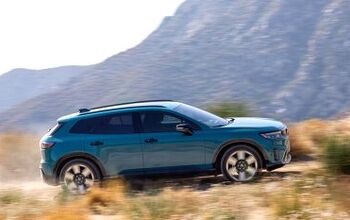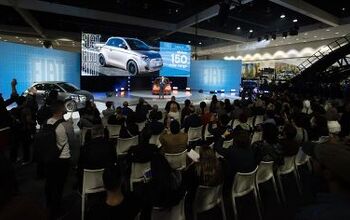Fiat Chrysler Wriggles Out From Under Past-due Loan by Outwaiting the Government

It took years, but Fiat Chrysler Automobiles finally unburdened itself from the weight of an unpaid loan by waiting until the government grew tired and gave up. Not that the automaker’s pursuer ever expected to recoup the cash.
It was revealed this week that Canada, which sunk nearly $14 billion into General Motors and Chrysler during the depths of the recession, quietly wrote off a $2.6 billion (CAD) loan made to Chrysler in 2009. It’s not the last bit of money owed to that country’s government by the two automakers, but it is a major outstanding chunk. In its defence, the feds didn’t have a hope in hell of getting the loan repaid, as the company that received it no longer exists.
“After exhausting all potential avenues for recovery, a $1.125 billion US principal plus accrued interest write-off in respect of ‘Old Chrysler’ occurred in March,” John Babcock of Global Affairs Canada told the CBC.
Documents show the money was loaned to Chrysler LLC in March, 2009. The entity that sprung up in the defunct automaker’s wake, Fiat Chrysler Automobiles, did pay back a $1.7 billion loan in 2011. Further plumbing of the country’s finances shows an outstanding $1 billion-plus loan to the “Old GM” administered by Export Development Canada in April of 2009.
In 2015, the country’s government, which purchased GM stock to keep it afloat, sold its remaining 73.4 million shares to Goldman, Sachs & Co.
The revelation of the Chrysler write-off prompted anger among fiscal transparency types north of the border. Like in the U.S., the bailout left taxpayers on the hook for billions, but the picture of who owes what is more opaque in Canada. It’s estimated that Canada lost $3.7 billion on the deal. The U.S. Treasury said in 2014 that the total loss to American taxpayers was $9.26 billion.
News of the write-off would likely have garnered even more acrimony, had the feds not abstained from the same kind of corporate welfare enjoyed by Ford and Toyota in recent years. FCA has, however, seen recent funding from the Ontario government.
Two FCA assembly plants in Ontario crank out the Dodge Grand Caravan and Chrysler Pacifica minivans, as well as the rear-drive Chrysler 300 and Dodge Charger sedans and Dodge Challenger coupe.
[Image: Fiat Chrysler Automobiles]

More by Steph Willems
Latest Car Reviews
Read moreLatest Product Reviews
Read moreRecent Comments
- IBx1 Everyone in the working class (if you’re not in the obscenely wealthy capital class and you perform work for money you’re working class) should unionize.
- Jrhurren Legend
- Ltcmgm78 Imagine the feeling of fulfillment he must have when he looks upon all the improvements to the Corvette over time!
- ToolGuy "The car is the eye in my head and I have never spared money on it, no less, it is not new and is over 30 years old."• Translation please?(Theories: written by AI; written by an engineer lol)
- Ltcmgm78 It depends on whether or not the union is a help or a hindrance to the manufacturer and workers. A union isn't needed if the manufacturer takes care of its workers.


































Comments
Join the conversation
Steph how are you calculating losses for the US bailout? https://projects.propublica.org/bailout/ Obviously if you are counting opportunity costs and underperformance of "Real" value pegged to inflation I could see an argument for a negative return. That said in dollars perspective the bailout generated profit (though you can argue very clearly about the profit not being enough to deal with the systemic implications of government involving themselves in the market to that degree). The bottom line though if you divorce policy arguments is that the bailout made money for the US, at the expense of other externalities but top to bottom it got more money back than it lent out.
"The bottom line though if you divorce policy arguments is that the bailout made money for the US, at the expense of other externalities but top to bottom it got more money back than it lent out." Guess who paid that "bailout" money back to the "US"? That's right, everyone that bought anything from FCA. So as usual it's a big circular joke. I recall reading the back pages of the business news during 2007-2011. FCA at least broke even, if not coming out ahead, on the 'purchase' of Chrysler. Much of the money coming from USA taxpayers was run through things like "manufacturing employee re-training" or other scams. I imagine Lee Ayatollah is getting a big laugh out of the whole thing. He got the taxpayers to kick in billions, in today's money, to keep Chrysler from going under in 1980. Yeah I know it was a "loan guarantee". However as part of the package, among other things, Chrysler paid past due bills to suppliers at 7 cents, or less, on the dollar. So it goes.... Corporate welfare ad infinitum.